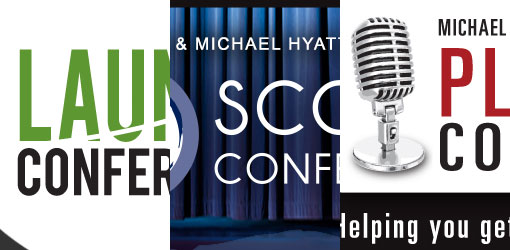
by Gwen Bortner | Show Your Work
Last week I attended my church conference not as a representative of my local church, but instead as a representative of our district which is composed of approximately 85 churches. In this role, I was asked to speak briefly to all of the laity (non-clergy) in attendance. What made my talk different than the other three given during that session was that instead of being inspirational, it was a mini-class.
This happened primarily because I was given minimal notice and when in doubt, I revert to “teacher” mode. After years of practice, if I possess the minimal amount of knowledge required, I can probably do a reasonable job of teaching the subject. And so when choosing to speak on a topic, I almost always choose an instructional message versus an inspirational message – even when speaking at church. But there is power in this approach.
(more…)

by Gwen Bortner | Training & Instruction
Historically I was never a big Sherlock Holmes fan. But with the recent movies and two TV series, my interest has grown. His methods, insights and attitudes are intriguing.
[featured-image single-newwindow=”false” id=”130924-SherlockHolmes.jpg” alt=”Historical Faces of Sherlock Holmes”]
What I have come to realize is that many of the tools Sherlock Holmes uses for solving a mystery are also wonderful tools for helping a class run smoothly. We just need to look at them a little differently and apply them to our challenge of teaching a class effectively as opposed to solving a crime.
(more…)

by Gwen Bortner | Abundance
I have spent this week experiencing abundance thinking: people generously sharing thoughts, ideas and knowledge in hopes of helping other people to achieve a similar level success.
[featured-image single-newwindow=”false” id=”130920-Camera.jpg” alt=”Kodak Brownie Camera”]Photo Credit: kevin dooley via Compfight cc[/featured-image]
I have long been a believer in abundance, but have only recently put a name to it for myself. That said, abundance thinking is not new; however it is solely lacking in this world. And as someone asked me this week, my lens is thinking abundantly about knowledge.
This past week I was at one of the three main events for Dynamic Communicators International, The Launch Conference. And I am so excited about the information they shared, how they shared it, but most importantly their overriding philosophy of abundance that I have also signed up for their next two events, SCORRE and Platform.
Their willingness to share so generously is why I have become their newest fan. Are these events free? Nope. Are they inexpensive? Nope. If anything, they would fall on the “investment” side of the financial scale. But being generous with your knowledge doesn’t mean you should give it away for free. In fact, doing so will often result in that knowledge losing its power.
People value what they pay for, work for, or earn. But so many people won’t share their knowledge, experience, ideas, successes and failures for fear someone else will copy them … and then surpass them. But abundance thinking is different. With abundance thinking, another person’s success isn’t a threat, it is something to be celebrated. One of the best definitions I have ever heard was on a recent podcast by Michael Hyatt, so I won’t repeat it all here (go listen to it … now)!
The truth is, the more you give from abundance, the more you actually receive in return. The more I share my knowledge, the more I learn. The more I am willing to give of myself, the more others are willing to give to me. Truly – it is like magic. But ultimately, that is why abundance thinking matters.
[reminder]What do you want more of? Try sharing what you have of whatever you named, and I bet more will come your way in a very short period of time. Or better yet – share your story of abundance in the comments below. I would love to be inspired![/reminder]

by Gwen Bortner | Training & Instruction
Have you ever had a difficult concept to share and just didn’t know where to start? Was the problem compounded by not having a lot of familiarity with your audience? I have a secret to getting my point across that has a wonderful success rate. It is not difficult, but it can require a bit of creativity.
(more…)

by Gwen Bortner | Tips & Tricks, Training & Instruction
This week I began a 3-part series that began with major categories of difficult students followed by preventative steps for managing those kinds of students. On the rare occasion it is needed, I still have a few tricks up my sleeve.
Image via Flickr by stevendepolo
I consider these tricks for dealing with difficult students a last resort. Because I am generally effective managing the classroom through preventative measures, I rarely have a need for these tactics. But do not doubt it, I have used each one of these at least once.
(more…)







